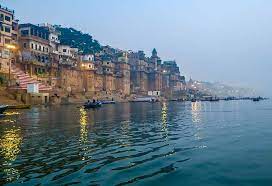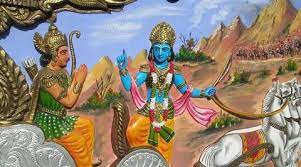
The significance of the Ganges river in Hindu mythology
The Ganges river, also known as the Ganga, is one of the most sacred rivers in the world, and it holds immense religious significance in Hindu mythology. The Ganges is a lifeline for millions of people who live along its banks, providing water for irrigation, transportation, and other essential needs. For Hindus, the Ganges is not just a river; it is a goddess, a mother, and a source of spiritual and physical purification.
In Hindu mythology, the Ganges river is associated with several important stories and legends, each of which illustrates the significance of the river in Hindu beliefs and practices.

The descent of the Ganges: According to Hindu mythology, the Ganges river originated in heaven and was brought to earth by Lord Shiva. The story goes that King Bhagiratha performed intense penance to bring the Ganges to earth to purify the ashes of his ancestors. Lord Shiva was pleased with his devotion and agreed to bring the Ganges down from heaven. The descent of the Ganges is celebrated every year during the Ganga Dussehra festival.

The story of Ganga and King Shantanu: King Shantanu fell in love with Ganga, who agreed to marry him on the condition that he would never question her actions. They had several children together, but Ganga would drown each child immediately after birth. When Shantanu questioned her actions, Ganga revealed that the children were the eight Vasus, who had been cursed to be born as humans. She had promised to release them from their curse and return them to heaven immediately after their birth.

The purification of sins: Hindus believe that taking a dip in the Ganges river can cleanse one of their sins and provide them with spiritual purification. The river is also used to perform various religious rituals and ceremonies, such as the last rites of the dead, which are believed to help the soul attain moksha, or liberation from the cycle of birth and death.

The Ganga aarti: The Ganga aarti is a daily ritual that takes place on the banks of the Ganges in various cities such as Varanasi, Haridwar, and Rishikesh. The aarti involves the offering of lamps and incense to the river, and the chanting of hymns and prayers. The aarti is a symbol of devotion and gratitude to the goddess Ganga, and it is believed to bring good luck and blessings to those who participate.

The Ganges river is also associated with several Hindu deities, such as Lord Shiva, Lord Vishnu, and the goddess Ganga. The river is often depicted as a goddess, with her flowing waters symbolizing the continuous flow of life and the power of nature. The Ganges is also seen as a motherly figure, providing sustenance and nourishment to those who live along its banks.

The Ganges is not just a religious and cultural icon; it also plays a crucial role in the ecological health of India. The river is home to a diverse range of flora and fauna, and it is an important source of water for irrigation and other essential needs. However, the river is also facing several environmental challenges, including pollution, over-extraction, and climate change. The Indian government has launched several initiatives to address these issues and protect the ecological health of the Ganges.
In conclusion, the Ganges river holds immense significance in Hindu mythology and culture, and is revered by millions of Hindus. Its importance is not limited to religion alone, as it plays a crucial role in the lives of people in India, both ecologically and economically. The river is believed to be a source of purity and is considered to have the power to purify sins. Hindus believe that taking a dip in the Ganges can wash away their sins and bring them closer to Moksha, the ultimate liberation from the cycle of birth and death. Apart from its religious and cultural significance, the Ganges also has ecological importance as it is one of the most important rivers in India and supports the livelihood of millions of people.

